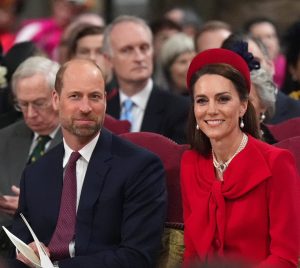What Is Cold Cap Therapy? Inside Kate Middleton’s ‘Preventative Chemotherapy’ Treatment
Cold Cap Therapy, often referred to as scalp cooling, has recently gained widespread attention after reports surfaced that the Duchess of Cambridge, Kate Middleton, might be using this treatment as a form of "preventative chemotherapy." The news intrigued many, prompting questions about what Cold Cap Therapy actually involves and whether it’s something that could benefit others. While this treatment has been around for some time, it has garnered new interest due to its potential applications in both cancer treatment and possibly as a proactive measure for other hair-related issues. But what exactly is Cold Cap Therapy, and how is it connected to Kate Middleton's health?
Understanding Cold Cap Therapy
Cold Cap Therapy is a non-invasive treatment that helps reduce hair loss during chemotherapy. It works by cooling the scalp, which constricts blood vessels, thereby reducing the amount of chemotherapy drugs that reach the hair follicles. Chemotherapy, while effective in treating cancer, is notorious for causing hair loss as one of its most visible side effects. The cold temperature in the caps slows down the rate at which hair follicles are damaged by chemotherapy, allowing patients to keep more of their natural hair throughout the treatment process.
Though Cold Cap Therapy was initially developed for cancer patients undergoing chemotherapy, recent reports suggest that it may have applications in other areas of health and wellness, including as a preventative treatment for hair thinning or hair loss. This could be one of the reasons why Kate Middleton, the Duchess of Cambridge, is reportedly using it.
How Cold Cap Therapy Works
The treatment involves wearing a cold cap, a tight-fitting cap that is filled with a cold gel or liquid. The cap is worn for a period before, during, and after chemotherapy sessions. The primary mechanism behind Cold Cap Therapy is the cooling of the scalp, which decreases blood flow to the hair follicles. This reduction in blood flow limits the exposure of hair follicles to the toxic chemotherapy drugs that typically cause hair to fall out.
For the treatment to be effective, patients typically wear the cold cap for up to four hours during each chemotherapy session. The cooling process is designed to protect the hair follicles by slowing the metabolic activity of the cells, thus preventing or reducing the amount of damage caused by chemotherapy drugs.
In terms of how it feels, Cold Cap Therapy can be quite uncomfortable, especially during the first 15 minutes when the cold cap is first placed on the scalp. The cold sensation can be intense, but over time, most patients adjust to it. The cap is usually worn in a clinical setting, under the supervision of healthcare professionals. However, some people also use at-home versions of cold caps, though these must be prescribed and managed by a medical professional for safety.
Kate Middleton and Preventative Chemotherapy
When it comes to Kate Middleton, there has been much speculation around her use of Cold Cap Therapy. Some outlets have reported that she has turned to scalp cooling as a “preventative chemotherapy” treatment. However, it's important to note that there has been no official confirmation from Buckingham Palace regarding this claim. The idea that Cold Cap Therapy could be used proactively, rather than in response to chemotherapy, is an intriguing concept that has led to questions about the potential benefits for non-cancerous uses.
Hair loss is a common concern for many people, and it can be emotionally distressing. Various factors can lead to hair thinning or loss, including genetics, hormonal changes, age, and stress. Celebrities like Kate Middleton, who are constantly under public scrutiny, may want to maintain their hair's health and appearance, which could explain why the Duchess might be interested in preventative hair treatments.
Some reports have speculated that Kate Middleton might be using Cold Cap Therapy to prevent hair thinning or to keep her hair in good condition as she ages. This is based on the idea that cooling therapy could promote scalp health by maintaining hair follicle vitality and slowing down hair shedding. While the connection to "preventative chemotherapy" may sound sensational, the basic principles behind the treatment’s effectiveness in slowing down hair loss during chemotherapy could have potential for use in general hair care.
Preventative Use of Cold Cap Therapy
While Cold Cap Therapy is primarily designed to treat chemotherapy-induced hair loss, there’s emerging interest in its application for those not undergoing cancer treatment. Preventative use could involve people who are experiencing natural hair thinning or those looking to preserve their hair during a period of high stress. Medical experts are beginning to explore how Cold Cap Therapy can be used to protect hair from the environmental and physiological factors that cause it to thin or fall out.
For example, people experiencing hormonal shifts due to pregnancy, menopause, or even stress may be able to use Cold Cap Therapy to combat thinning hair. Although the therapy isn’t scientifically proven to work for non-chemotherapy-related hair loss yet, the cooling effect on the scalp might improve blood flow to the hair follicles, potentially boosting the health of the hair and prolonging its natural growth cycle.
One of the key advantages of Cold Cap Therapy as a preventative treatment is that it’s non-invasive. Unlike hair transplants or oral medications that can come with side effects, Cold Cap Therapy simply requires the patient to wear a cold cap for a set period of time, with no lasting effects on the body. This makes it an attractive option for those looking for a gentler approach to maintaining hair health.
The Potential Risks and Downsides
Although Cold Cap Therapy has been proven to reduce hair loss during chemotherapy, it is not without its risks. The process of cooling the scalp can lead to side effects, such as headaches, scalp discomfort, or the sensation of cold-induced pain. There is also a risk that the therapy may not work for everyone. Some people may still experience significant hair loss, despite using the cold caps. Additionally, wearing a cold cap for prolonged periods of time can be uncomfortable, especially if the temperature is too low or if the cap is not fitted properly.
Furthermore, Cold Cap Therapy is not suitable for all types of cancer. For example, it may not be as effective in cases of aggressive or fast-growing cancers, where chemotherapy drugs need to circulate widely in the body. In some cases, it may not be recommended due to concerns about scalp circulation and the impact on the treatment’s overall effectiveness. As such, it’s essential for patients to discuss their options with their oncologist before opting for Cold Cap Therapy.
Is Cold Cap Therapy Right for You?
While Cold Cap Therapy has proven effective for many chemotherapy patients, its use for non-cancer-related hair loss is still being explored. There is no definitive research to suggest that the treatment can prevent or reverse natural hair thinning caused by aging, genetics, or stress. However, for people who are looking for a more natural, non-invasive way to manage hair health, it may be worth considering.
Before deciding to use Cold Cap Therapy, it’s essential to consult with a healthcare provider or a dermatologist to determine if it’s appropriate for your situation. They will be able to assess your health, hair type, and the underlying causes of hair loss to help you decide whether Cold Cap Therapy is a viable treatment option. Cold Cap Therapy is a promising, non-invasive treatment designed to combat hair loss during chemotherapy. While its most common use remains in the cancer community, there’s growing interest in its potential applications as a preventative measure for non-cancer-related hair thinning. The idea that Kate Middleton might be using Cold Cap Therapy as part of her personal hair care regimen has sparked widespread curiosity, though no official confirmation has been made. As the popularity of this treatment continues to grow, it remains important to consider both its benefits and potential drawbacks before diving into this form of scalp cooling therapy.
Whether used for chemotherapy or general hair care, Cold Cap Therapy offers a hopeful solution for those looking to maintain their hair during difficult times. As the science around this treatment continues to evolve, it may very well offer a future option for individuals looking to preserve their locks and their self-confidence.





















